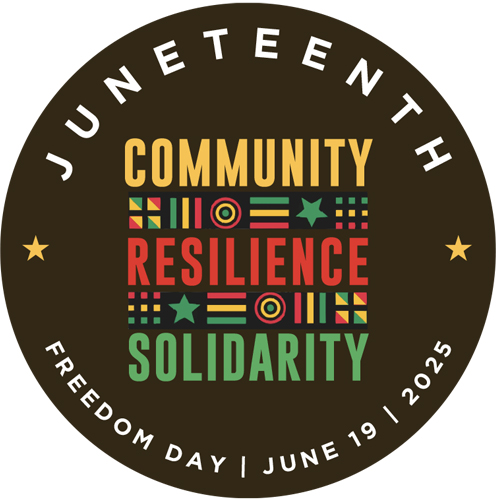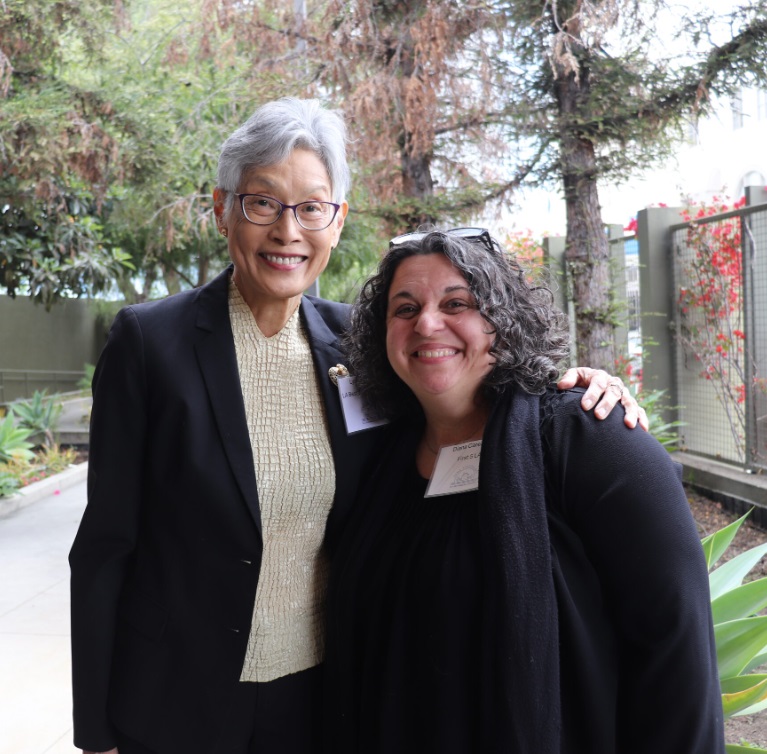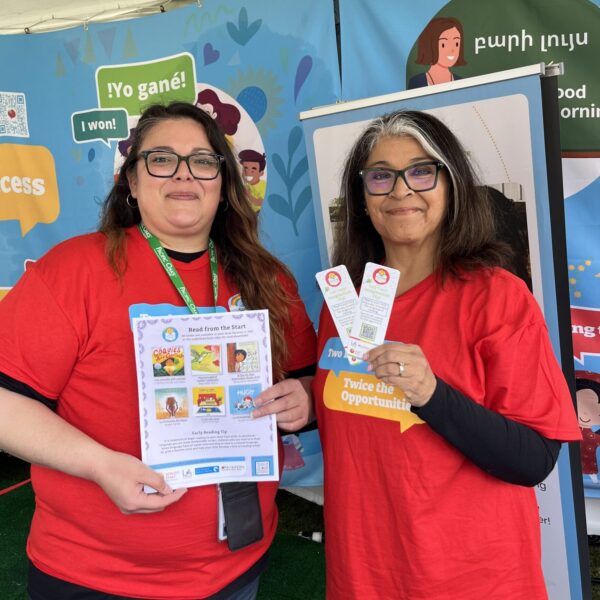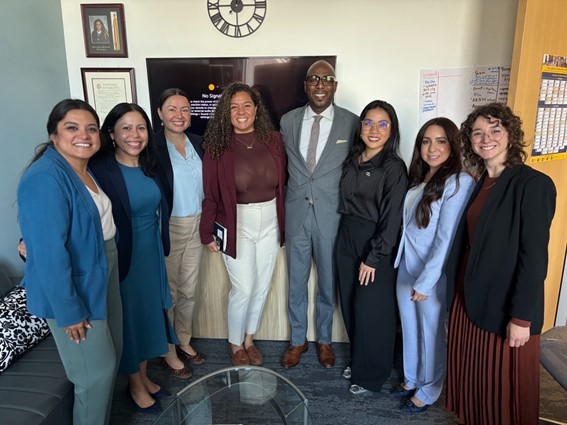Why the Early Years Matter
What happens to our youngest children today will impact all of us tomorrow. When we dedicate attention and resources to children at the earliest stages of their lives, we are laying the foundation for our community’s social and economic future.
Science tells us that the basic architecture of the brain is constructed through an ongoing process that begins before birth. In fact, 80 percent of a child’s brain is developed by age 3, which means that a child’s success in school and life starts from the earliest moments – before birth, at home, and with her parents and caregiver. That’s why investing in the early years matter.
Negative interactions like stress and trauma can weaken and damage a child’s brain, hampering its ability to grow and function. Stress can come from things like fear, hunger, poverty or even interacting with a parent under stress. Chronic stress in a baby can literally stop the cells in her brain from growing and forming connections – leading to learning problems, behavioral issues and even physical and mental illness as an adult.
First 5 LA is working with parents, communities, and service providers to ensure that parents and caregivers have the skills, knowledge and supports to promote their child’s optimal development.
Click here to learn more about our Strategic Plan.
Advancing Trauma-Informed Systems in L.A. County
First 5 LA and its partners are calling for a commitment within organizations and systems to help individuals, families, and communities both heal from trauma and strengthen their resiliency, to become trauma and resiliency-informed.
On April 1, 2016, First 5 LA, in partnership with The California Community Foundation, The California Endowment, and The Ralph M. Parsons Foundation launched a countywide trauma-informed care systems change initiative with the commitment of more than 30 public, nonprofit and philanthropic partners.
The Center for Collective Wisdom (C4CW) was chosen as the organization to help design and facilitate the first exploratory phase of this effort. C4CW has a long history of designing and leading successful large-scale change efforts in Los Angeles County and communities across the country. Their work on this initiative included conducting an extensive environmental scan of current research and trauma-informed systems change efforts from across the country. C4CW also designed and facilitated the workgroup process that generated the recommendations for strategies to advance this work across L.A. County.
The county-wide public-private partnership has entered into the next phase of its work. Using the final report recommendations as a guide, the funders and county-wide partners will begin to plan and advance specific activities to create a trauma and resiliency informed Los Angeles County.
For more information, refer to the following reports on Trauma and Resiliency: A Systems Change Approach.
- Emerging Lessons and Potential Strategies from the Los Angeles County Trauma and Resiliency-Informed Systems Change Initiative, July 2017
- Year 2 Lessons and Potential Next Steps for the Los Angeles County Trauma and Resiliency-Informed Systems Change Initiative, August 2018
- Executive Summary of Year 1 and Year 2 Final Reports for Los Angeles County’s Trauma and Resiliency-Informed Systems Change Initiative, August 2018
What is a Trauma-Informed County?
- A trauma-informed county recognizes the pervasiveness of trauma among individuals, families, communities and within public institutions and service systems.
- A trauma-informed county acknowledges the critical role services and systems play in understanding and addressing trauma.
- A trauma-informed county works to make its systems more responsive to people who have experienced trauma by implementing a trauma-informed approach that fully integrates knowledge of trauma into policies, procedures, and practices, and actively works to resist re-traumatization.
Advancing trauma-informed care and services in Los Angeles County is a collective effort built on the commitment of the public, nonprofit and philanthropic communities.
For more information, contact Tina Chinakarn, MPH, Program Officer at First 5 LA, at tc********@******la.org.
Trauma and Parenting Training
The connection between trauma and parenting plays a significant role in the lives of parents, children and their communities. Early childhood trauma, whether it’s the experience of the parents or their children, can carry a profound impact on the future well-being of families. The latest research increasingly shows the serious role early childhood trauma plays later in life.
Diana Careaga, Senior Program Officer, Program Development Department, conducted a training for First 5 LA staff that we are now making public for our grantees and other stakeholders. This training provides a foundational understanding of trauma, identifies significant causes of early childhood trauma, and explores how trauma impacts not only a child’s development but the parent-child relationship.
The topic of trauma has been both a professional and personal interest of Diana’s for years, and led to her participation in a 100-hour Trauma Informed Nonviolent Child Raising Training, conducted by Echo Parenting and Education. The goals of this training are to provide a deeper understanding of trauma and its impact on health and behavior, parents and communities, and will provide information on factors that support resiliency and healing.
Please watch and enter your comments in the box below. We look forward to learning from your experience and broadening the conversation around trauma for Los Angeles County. To learn more about First 5 LA’s work and the latest news regarding childhood issues, please subscribe to our monthly newsletter, Early Childhood Matters.
Child Homelessness and Trauma
Homelessness exacerbates childhood exposure to trauma, and childhood trauma can be a contributing factor among adults who experience homelessness. This cyclical relationship between the two is damaging and costly to individuals, agencies, and communities. The National Center on Family Homelessness estimates that more than 2.5 million children and their families will be homeless in the United States at least one night within a given year, and approximately half or 1.25 million will be children under the age of six. Families experiencing homelessness live in emergency shelters, transitional housing, in cars, under bridges or in other places unfit for human habitation. First 5 LA estimates that on any given night 3,000 children from birth to age 5 in Los Angeles County may be among them.
Children who experience homelessness have higher rates of school absenteeism, developmental delays, and mental health problems than other children. They are sick four times more often than other children and have emotional and behavioral problems such as anxiety, depression and aggression at three times the rate of their peers. There is growing consensus among researchers that the systems that touch homeless families should address the trauma caused by loss of home, safety and security as well as other traumatic events that often pre-date or accompany homelessness such as domestic violence and/or substance abuse. Without a trauma-informed approach, which uses knowledge of trauma and its effects in the design and delivery of services, children may suffer negative consequences that last a lifetime including potential damage to their mental, physical, cognitive and social functioning.
Read the full report here: www.first5la.org/files/ChildHomelessnessTrauma.pdf
Related Articles
Impact of immigration fears on families and what we’re doing about it 10.24.17
Stressful Life Events May Increase Stillbirth Risk 9.16.13
Advice from experts on how to help children cope with tragedy coverage in the news 4.16.13
Young children can develop mental health problems too 6.13.11






